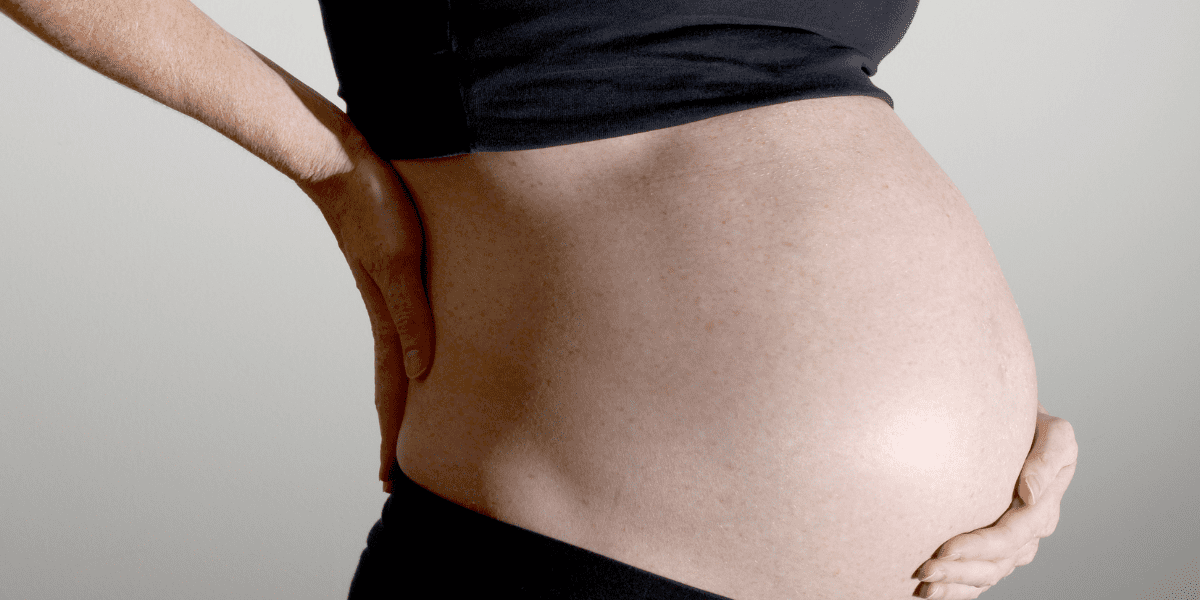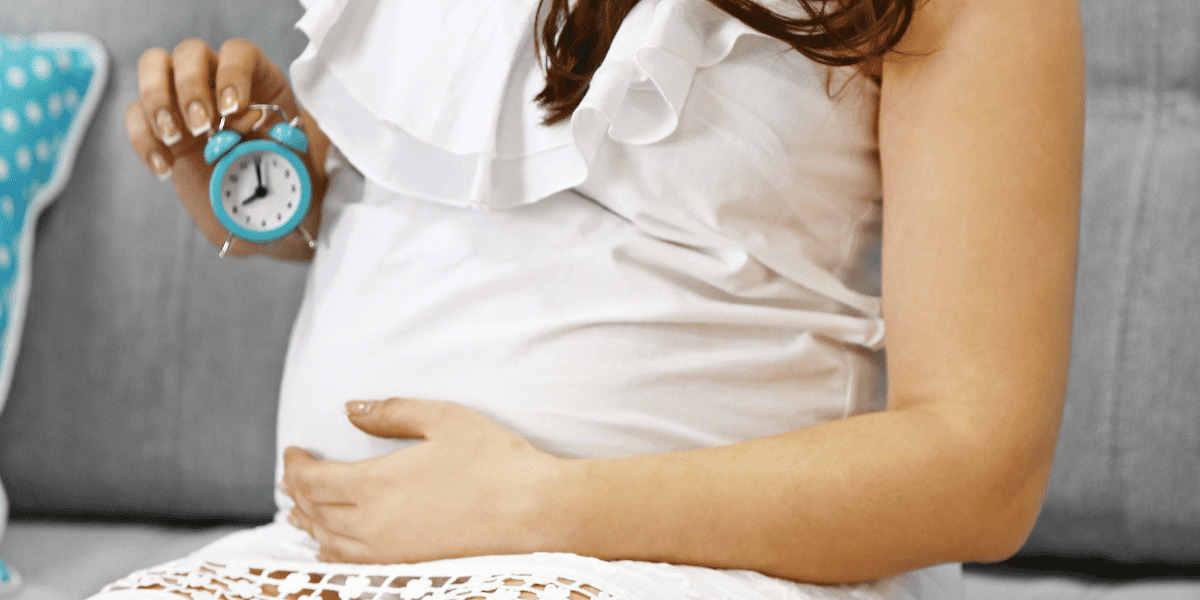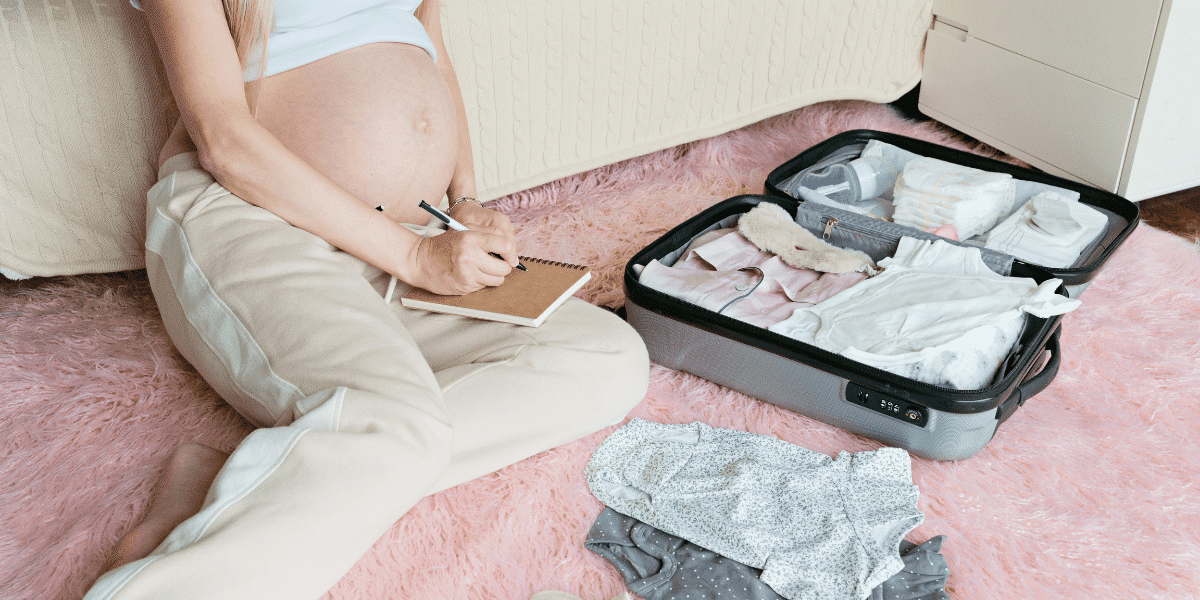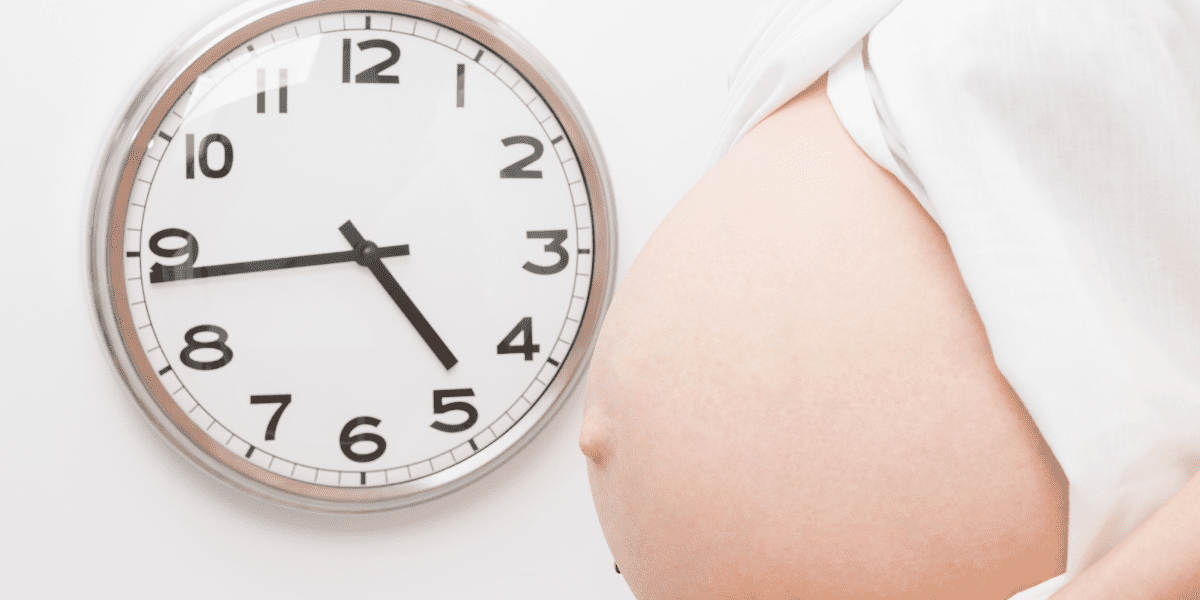We’ve all seen how early stages of labor play out in movies: The pregnant woman’s water breaks at the most inconvenient time, she’s rushed to the hospital, and she emerges with a smile and with a baby shortly after.
As an Amazon Associate I earn from qualifying purchases. The links below may be affiliate links. Please read my disclosure policy for more information.
But, as we all know, this isn’t usually the case in reality. Although the woman’s water breaking and having contractions are the most obvious symptoms that labor is on its way, there are a few more subtle (and weird) signs that you’re about to go into labor. Some of those signs are:
[adthrive-in-post-video-player video-id=”c4ryoC4Y” upload-date=”2022-06-15T10:32:47.000Z” name=”Weird Signs of Labor” description=”” player-type=”collapse” override-embed=”false”]LOWER BACK PAIN
Pregnancy causes a lot of back pain for women. Back pain can be caused by a variety of factors, including the excess weight they are carrying.
While most pregnant women experience back discomfort during (and even before) pregnancy, an increase in severity could indicate something more serious.
Not all contractions begin in the abdomen. Early contractions can cause lower back pain or aching legs in some women.
While you wait for labor to begin, a hot water bottle or a TENS machine (transcutaneous electrical nerve stimulation machine) can help to relieve these discomforts.
A woman’s backache that extends down her bottom and thighs, on the other hand, could be an indication of labor.
Women may have chronic discomfort in their lower backs just before giving birth, which may feel similar to the agony some women experience when they are about to have a period.

STOMACH TROUBLES
Diarrhea is a really uncomfortable condition to have. Due to all of the other unpleasant symptoms that moms face throughout pregnancy, it can be even more painful.
There is, however, a reason why most women experience diarrhea before giving birth.
Did you know that nausea, vomiting, and diarrhea can all indicate the start of labor? The reason for this is that your body clears itself out as your hormones rise.
In the weeks leading up to delivery, your body creates more relaxin. Relaxin relaxes your muscles, making it easier to give birth.
This affects every muscle in your body, including your rectum, which might cause diarrhea.
This, however, is a wonderful thing because it aids your body in eliminating all unwanted materials prior to giving birth!
The emptying of the bowels is thought by some experts to be the body’s method of creating room for the baby. This is usually not a pleasant experience, and it is one of the non-traditional labor indicators.
Call your prenatal care provider for guidance if you can’t keep fluids down, have symptoms for more than 24 hours, or have a temperature.
A SHOW
At the time of conception, the mucus plug is formed. It’s a mucus plug that sits on the end of your cervix to prevent hazardous bacteria or germs from entering.
You may lose your mucus plug when your cervix dilates.
For some pregnancies, this is very noticeable, while for others, it is barely noticeable.
The mucous plug that covers your cervix inside is called the show, or operculum. The show can come away as your cervix softens and prepares for labor, and you might find it when you go to the bathroom.
It could be speckled with blood and rather stringy, or it could come out in small clear parts.
However, don’t think that just because the show is on the air implies that the baby will be born right away. The show could appear up to two weeks before labor begins or during the early stages.
However, if you have the bloody show and it’s a no-show for their baby, you shouldn’t be unhappy. Labor doesn’t often start shortly after you’ve lost it.

YOU BREAK OUT
At the end of pregnancy, an increase in androgens can occur. This increase aids in the ripening of your cervix, but it might also result in one final break out.
NESTING
It might be baffling in the days leading up to the start of labor. Either your body will be conserving energy in preparation for childbirth, or you’ll be nesting at the last minute!
Although most women experience nesting in late pregnancy, it can become more intense in the days leading up to the baby’s birth.
It’s a good idea to double-check that you’ve got everything ready for labor if you discover yourself cleaning lightbulbs.
Mother Nature’s method of assisting moms in preparing for the arrival of their offspring is nesting. Some women start nesting a few weeks before childbirth, while others start a few days before.
One of the weirdest indicators of labor is this. Understandably, numerous bodily changes occur during this period, but nesting is a mental change.
It’s not anything that most people would recognize as a sign of labor unless they’ve gone through the process before.
Women frequently want to get a lot of things done at this time. However, they should keep their heads down and relax because they will use all of that energy and more when their infants arrive.

FEELING COLD BEFORE LABOR
Your body’s approach to releasing tension is to feel cold and/or shiver before, during, and after labor.
Flu-like symptoms, including chills, vomiting, coughing, and aches, without a temperature, might be a strange warning of approaching labor.
Women who are concerned about feeling this way while pregnant should contact their doctors immediately.
It could be a symptom of something more serious. If these symptoms are a sign of impending labor, they normally pass quickly before the baby arrives.
They may even strike following a spurt of activity in a pregnant lady. Flu-like symptoms are another undesirable sign that your body is getting ready to give birth.
It may be the ray of hope at the end of a lengthy pregnancy journey, despite the fact that it is not a pleasant sign.
A CHANGE IN YOUR PET
The scent of your body may change as you get closer to labor. This may cause pets to pick up on it and behave differently as a result.
Domestic animals are wise old things. When a baby is on the way, pets often show signs of anticipation by changing their behavior.
Some pregnant women may find that their dog or cat is following them more than normal in the latter weeks of their pregnancy. They may also realize that they are on their feet more often than normal.
Pets are extremely sensitive to changes in their owners’ lives. It’s no wonder, then, that a family pet can know when a baby is on the way. Owners may notice that their pet is acting weird.
They might even follow them into the restroom. If they are separated from their owner, they may begin to whine.
Pet owners who are expecting a baby need not be worried; their pet is simply sensing that labor is approaching. This is a very adorable trait that can help pregnant people and their pets bond.
Owners of pets should see it as an indication that they are in touch with themselves and their prized possessions.
Furthermore, before the arrival of the baby, one should shower extra affection on their pet so that they do not feel neglected when the newborn receives all of the attention.
This is another strange sign of approaching labor.

FEELING EMOTIONAL
When a woman is in her last few weeks of pregnancy, she may become more emotional than usual.
Pregnancy is already an emotional experience, so what makes the emotional breakdown at the end of the pregnancy any different?
There isn’t much to it except that it occurs at the later stage of the pregnancy.
This intense rush of emotions could be caused by a hormonal surge. Moms may become overwhelmed as a result of a mix of lack of sleep and enthusiasm.
Before labor begins, some women may find themselves crying over a variety of issues.
If a woman has cried while watching a tv show or looking at a picture of a lovely puppy, she may be on the verge of giving birth.
Though these scenarios may not be amusing at the time, they will undoubtedly be humorous when the kid is delivered.
If moms are feeling emotional before birth, they should take a few deep breaths and imagine themselves holding a loving newborn.
THE BABY STARTS MOVING A LOT
The fact that the baby is moving less than usual is usually a sign that labor is on the way.
This isn’t because they aren’t moving at all; rather, the patterns are shifting. Instead of kicking, they will wiggle and shuffle, giving the impression of less activity.
INSOMNIA
Women who are in the final few weeks before giving birth to their baby should receive as much rest as possible. On the other hand, this isn’t always an option.
There are a variety of reasons why women may toss and turn at night during that stage of their pregnancy, one of which is the possibility that labor is close at hand. Insomnia could indicate that the baby is on the verge of making an appearance.
The best strategy to deal with sleeplessness that occurs just before labor is to attempt to relax as much as possible. Women can rest up by drinking a hot cup of tea and lying down before going into labor.
Leaving electronic gadgets alone for a few minutes before bed might also help the body prepare for a restful night’s sleep. Mother nature may be preparing women for the sleepless nights they will experience once their babies come.
WEIGHT LOSS
Pregnant women typically gain weight throughout the duration of their pregnancy. They may, however, lose part of it at the conclusion of their pregnancies.
Even if they aren’t feeling well, they should continue to feed themselves (particularly before giving birth).
Some women lose 1-3 pounds in the days leading up to their due date. Hormonal changes at the end of pregnancy are to blame for this weight loss.
The majority of the weight gained is usually water weight stored in bodily tissues during pregnancy. Sweat and urine are used to eliminate this water weight.
When the number on the scale drops at the conclusion of pregnancy, women can look forward to the start of labor.

LOSS OF APPETITE
Pregnancy is similar to riding a roller coaster. Morning sickness is common throughout the first trimester, and many women struggle to keep food down.
However, some women may notice an increase in their hunger throughout the second and third trimesters. Most mothers simply wanted to eat their favorite dishes, and this is a wonderful sensation.
Unfortunately, the lack of appetite they experienced in the first trimester could return before they give birth. If they had a healthy appetite in the final weeks of pregnancy but now have a sour stomach, they may be about to give birth.
A woman can soothe her stomach by eating broths, crackers, and other light foods. They must ensure that their bodies have enough strength to complete the labor marathon.
SPECIFIC FOOD CRAVINGS
There are times when a woman may experience overwhelming cravings for something specific just before labor begins.
For example, when a woman is nearing the end of her pregnancy, she may realize that she has an unexpected appetite for noodles. For other women, this is just another strange sign of labor.
While pregnant women are familiar with cravings at this point, an increase in the severity of the emotion or impulse to eat something could signal the start of labor.
If you’re craving salty chocolate more than usual, the baby could be on the way sooner than you think.

